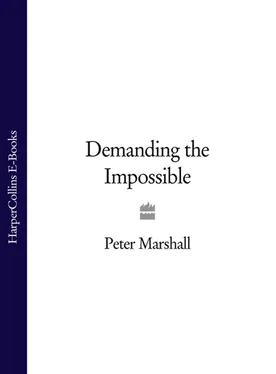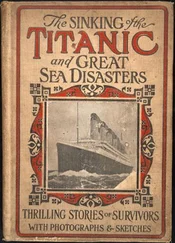It is not possible to improve prisons. The more prisons are reformed, the more detestable they become: modern penitentiaries are far worse than the dungeons of the Middle Ages. The best cure for anti-social tendencies is to be found in human sympathy. Kropotkin concludes:
Peoples without political organization, and therefore less depraved than ourselves, have perfectly understood that the man who is called ‘criminal’ is simply unfortunate; that the remedy is not to flog him, to chain him up, or to kill him on the scaffold or in prison, but to help him by the most brotherly care, by treatment based on equality, but the usages of life amongst honest men. 61
Anarchists assume that there would be a greater harmony of interests amongst individuals living in a society without government, law and unequal property. But they do not think that everyone would immediately behave in a responsible fashion and there would be no more disputes or conflicts. In place of the force of law, Godwin and Kropotkin recommended the influence of public opinion and mutual censure to reform conduct. There is of course a possibility that the tyranny of public opinion could replace the oppression of law. But while Godwin and Kropotkin allow censure as a form of social control, they insist that people should decide for themselves how they should behave.
Again, in a society where anti-social individuals are considered to be sick and in need of a cure, psychological manipulation can be more coercive and tyrannical than imprisonment. The use of psychiatry to reform dissidents has become notorious in authoritarian societies. Stirner put the problem succinctly: ‘ Curative means or healing is only the reverse side of punishment , the theory of cure runs parallel to the theory of punishment; if the latter sees in an action a sin against right, the former takes it for a sin of the man against himself , as a decadence from his health.’ 62
With their concern for personal autonomy and individual freedom, anarchists more than any other socialists are aware of the inhumanity of both physical punishment and manipulative cure for anti-social members of the community. They look to reasoned argument and friendly treatment to deal with criminals and wish to respect their humanity and individuality.
The Nation-State has become the norm of modern political organization and the main object of citizens’ loyalties. The State is considered the guardian of a nation’s identity, and colonized peoples who win their independence invariably strive to set up their own Nation-State. Yet many nations exist without their own States, and many States consist of several different nations. The Nation and the State are not therefore synonymous. Nor are they necessarily desirable. From the beginning, the anarchists have questioned the legitimacy of Nation-States and strongly resisted their formation. 63 They have not however ignored the strong emotional pull of nationalism and patriotism, and some, notably, Proudhon and Bakunin, have succumbed to it.
Like the ancient Stoics, the anarchists have always been cosmopolitan and internationalist in outlook, and considered themselves ‘citizens of the world’. In general, they have supported national liberation struggles as part of a wider struggle for freedom, but they have opposed the statist aspirations and exclusive loyalties of the nationalists. They are particularly critical of patriotism which makes the ruled identify with their rulers and become their obedient cannon-fodder. They also recognize that rivalry between Nation-States is one of the principal causes of war.
Godwin was highly critical of Rousseau and others who exhorted people to love their country and to ‘sink the personal existence of individuals in the existence of the community’ as if it were an abstract being. The love of our country is ‘one of those specious illusions which are employed by impostors for the purpose of rendering the multitude the blind instruments of their crooked designs’. It makes us consider whatever is gained for country as so much gained to ‘our darling selves’. Patriotism moreover leads to ‘a spirit of hatred and all uncharitableness towards the countries around us’. In place of a narrow patriotism, Godwin taught universal benevolence: we should help the most needy and worthy, regardless of our personal connections. We should act as impartial spectators and not be swayed by the ties of family, tribe, country, or race. And since ideas of great empire and of legislative unity are plainly ‘the barbarous remains of the days of military heroism’, Godwin looked to a decentralized society of federated parishes to replace the Nation-State. 64
Tolstoy like Godwin also rigorously condemned patriotism. He saw it inextricably linked with government. By supporting government and fostering war, he declared patriotism to be a ‘rude, harmful, disgraceful, and bad feeling, and above all, immoral’ since it influences man to see himself the ‘son of his fatherland and the slave of his Government, and commit actions contrary to his reason and his conscience’. 65 He felt that if people could understand that they are not the sons of some fatherland or other, nor of Governments, but the sons of God, they would be neither slaves nor enemies to each other.
Not all anarchists however have condemned patriotism so roundly as Godwin and Tolstoy. Proudhon was undoubtedly a French nationalist. As he grew older, he not only celebrated the French revolutionary tradition but also the French people and their heritage. He was markedly anti-Semitic. Nevertheless, he argued that federalism is the only answer to end the rivalry between nations and to dissolve empires. Like Rousseau, he felt that the larger a nation in territory or population, the greater the danger of tyranny. He therefore urged a process of decolonization, as the United States and Canada had from England, and looked to a time when Algeria would constitute itself an ‘African France’. 66
Bakunin was a nationalist before becoming an anarchist. He tended to harbour nationalist prejudices, celebrating the freedom-loving and spontaneous Slavs and condemning the militaristic Germans. He thought Marx was a thorough-going authoritarian partly because he was a German and a Jew. However, Bakunin’s early support for Polish nationalism and Panslavism was motivated by a desire to break up the Russian empire and to set its colonized peoples free. He expressed ‘strong sympathy for any national uprising against any form of oppression’ and declared that every people has ‘the right to be itself and no one is entitled to impose its costume, its customs, its language, its opinions, or its laws’. 67
While Bakunin believed that nationalism was a ‘natural fact’ and that each nation had an incontestable right to free development, he did not think nationalism acceptable as a legitimate political principle because it has an exclusive tendency and lacks ‘the power of universality’. 68 In a subtle analysis of patriotism, he distinguished three types. The first is ‘natural’, an ‘instinctive, mechanical, uncritical attachment to the socially accepted hereditary or traditional pattern of life’. But while it is an expression of social solidarity, it exists in an inverse ratio to the evolution of humanity. The second is ‘bourgeois’, the object of which is to maintain the power of the Nation-State, that is ‘the mainstay of all privileges of the exploiters throughout the nation’. The third is ‘proletarian’, the only truly acceptable form of patriotism, which ignores national differences and State boundaries and embraces the world. 69
Bakunin therefore looked to a ‘large, fraternal union of mankind’ and extended the principle of federalism to the world as a whole. As a transition to a federation of all nations, he called for a United States of Europe as the only way of making a civil war between the different peoples in the ‘European family’ impossible. The ‘United States’ he had in mind however would not be a centralized, bureaucratic and military federation, but organized from the bottom up with member nations having the right to secession. True internationalism, he insisted, rests on self-determination: ‘each individual, each association, commune, or province, each region and nation, has the absolute right to determine its own fate, to associate with others or not, to ally itself with whomever it will, or break any alliance, without regard to so-called historical claims or the convenience of its neighbour’. 70 Only in this way would nations cease to be the products of conquest and historical and geographical distortion. In the long run, however, Bakunin believed that the national question is secondary to the social revolution and the social revolution should become a world revolution.
Читать дальше












